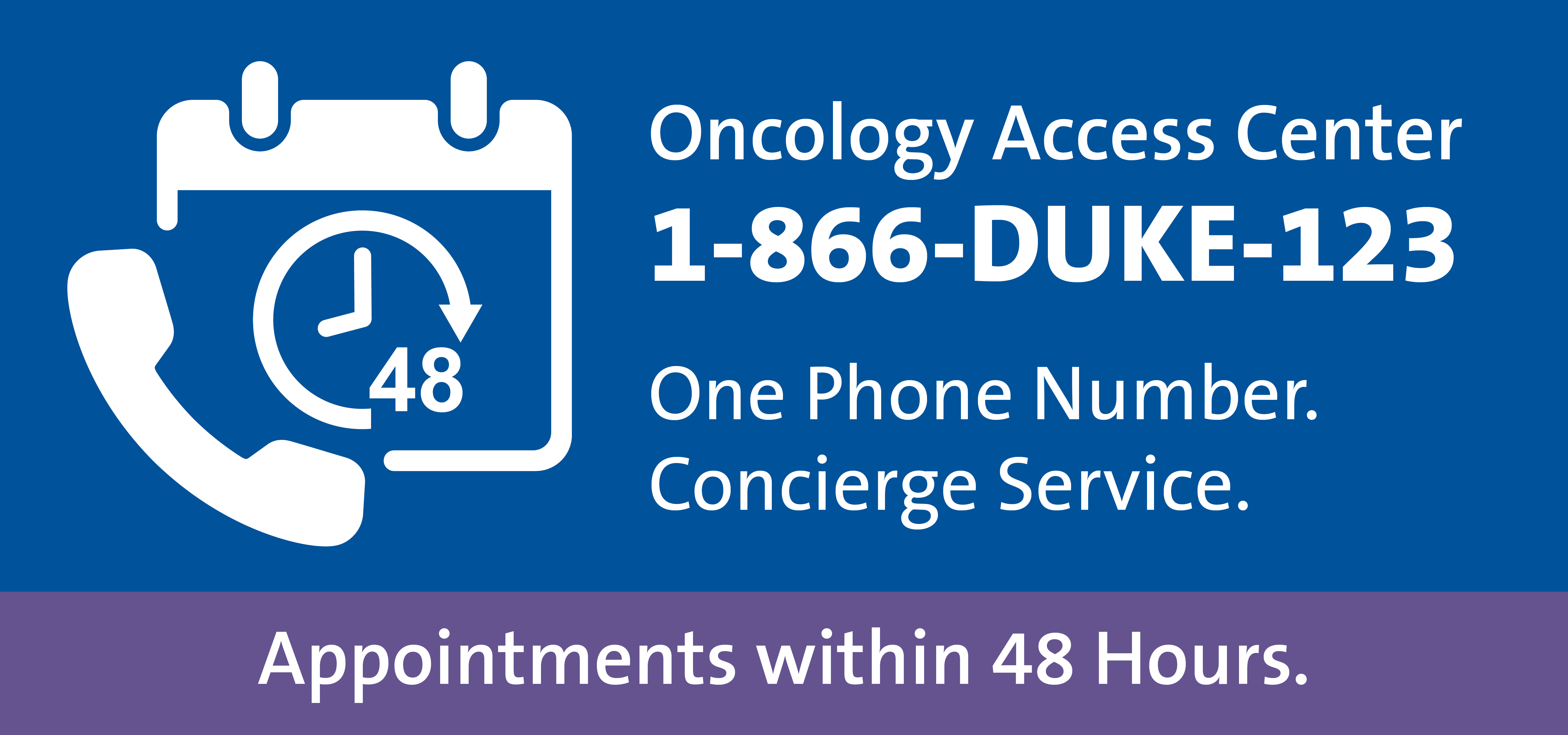The Duke Cancer Institute’s Thyroid Cancer Center brings together thyroid cancer experts across multiple specialties to deliver some of the most comprehensive thyroid cancer care in the southeast U.S. The coordinated approach, through a tailored care team, offers rapid access to cutting-edge treatments for pediatric and adult patients with a thyroid cancer diagnosis.
“We’re a regional referral center for surgical and endocrinology specialties treating complex endocrine neoplasia, including thyroid cancers,” says Todd Frieze, MD, an endocrinologist and co-director of the center.
Randall Scheri, MD, the center’s other co-director and a surgical oncologist, adds, “One unique thing about our center is that we have endocrinologists and surgeons who focus on the treatment of thyroid diseases and cancer with the collective expertise and experience to facilitate the best possible surgical outcomes and treatments with the multi-disciplinary team.”

Call the referring provider team Monday through Friday between 8:00 a.m. and 4:30 p.m. at 866-385-3123 (1-866-DUKE-123). You can also email OncologyReferral@Duke.edu or fax 919-613-2316.
Expediting care for patients
The team has developed a systematic workflow to expedite new patient appointments, diagnosis, and treatment. Dedicated referral coordinators partner with nursing and administrative staff to schedule new patients with appropriate specialists. Patients also benefit from efficient pathways that provide rapid access to thyroid imaging and biopsies, as well as collaboration with specialists representing head and neck surgery, endocrine surgery, medical oncology, endocrinology, radiation oncology, and genetics.
“Our new patient coordinator supports patients by scheduling appointments and testing in the most efficient way possible, consolidating appointments in one day, when possible,” says Scheri.
Collaboration
The team convenes on cases through weekly multidisciplinary endocrine tumor conferences, with representation from head and neck surgery, endocrine surgery, medical oncology, endocrinology, radiology, pathology, nuclear medicine, and cancer genetics. “We review complex cases and all pitch in to determine a well-rounded recommendation for next steps,” says Scheri.
A unique aspect of the center is its multidisciplinary approach with subspecialist care. “We also have expert thyroid oncologists, sub-specialized endocrine medical oncologists, and several surgeons dedicated to thyroid cancer,” says Frieze. “We all work together to consult on cases and deliver the best care possible.”
Frieze also represents Duke with the National Comprehensive Cancer Network (NCCN), where he coordinates with other thyroid cancer experts across the country through workgroups discussing the best practices in thyroid cancer care.
High volume, high-tech surgical expertise
The Thyroid Cancer Center has completed over 1,100 surgeries in the last year. “We do a high volume of minimally invasive and alternate access surgical approaches to treat thyroid cancer. These approaches lower the risks of complications for patients,” says Scheri. “We are very focused on thyroid preservation as well, when possible, so patients retain more function.”
Scheri explains that in more complex cases, surgeons work with interventional radiologists to perform ablative techniques and cryopreservation. “We offer unique treatments that many other centers don’t have, as well as access to specialty thyroid cytopathologists and surgical pathologists.”
Full spectrum care
After surgery, coordinators help patients maintain continuity of care, which often involves seeing Frieze or other thyroid-focused endocrinologists for longitudinal surveillance. “I’m monitoring patients’ thyroid cancer blood panel, and I perform my patients’ neck ultrasounds, which is a point-of-care service for patients; they don’t have to wait for an additional appointment or delays with reading results,” says Frieze. Frieze and Scheri also collaborate in real time during clinic days.
“We want our community physicians to know we can support their patients and are happy to work up any thyroid nodules,” says Scheri. “We’re here to help and to see patients who need treatment for thyroid cancer quickly.”
